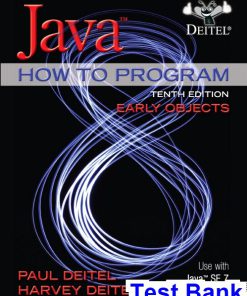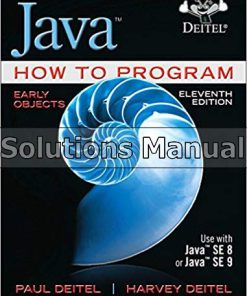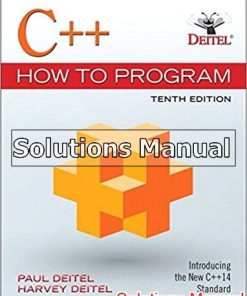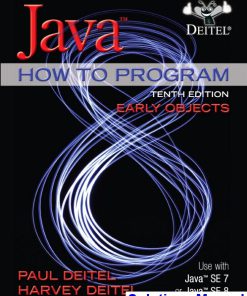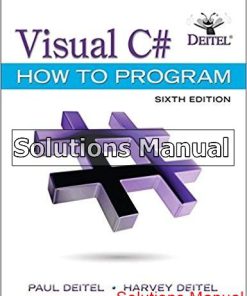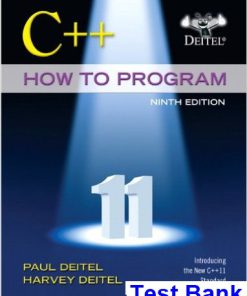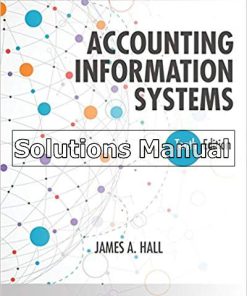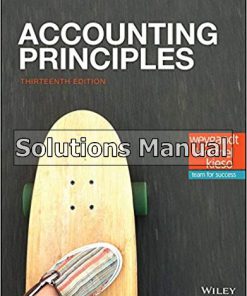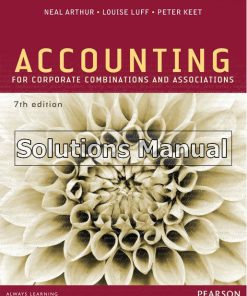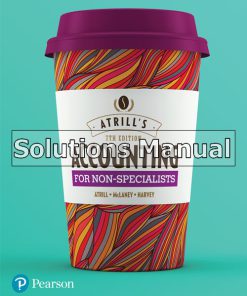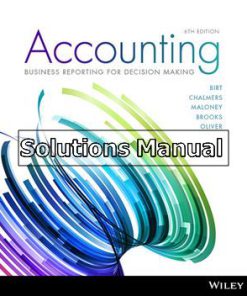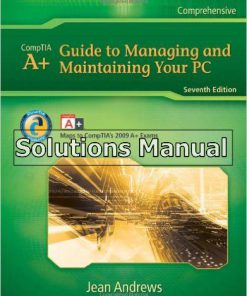C++ How to Program Early Objects Version 9th Edition Deitel Solutions Manual
$26.50$50.00 (-47%)
C++ How to Program Early Objects Version 9th Edition Deitel Solutions Manual.
You may also like
Instant download C++ How to Program Early Objects Version 9th Edition Deitel Solutions Manual pdf docx epub after payment.
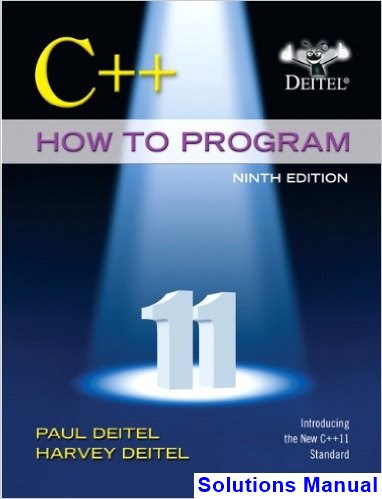
Product details:
- ISBN-10 : 8120349997
- ISBN-13 : 978-8120349995
- Author:
This book is in excellent condition – no marks, torn pages, or binding problems. Gently used for one semester.
C++ How to Program Early Objects Version 9th Edition Deitel Test Bank
Table of contents:
1 Introduction to Computers and C++ 1
1.1 Introduction 2
1.2 Computers and the Internet in Industry and Research 2
1.3 Hardware and Software 5
1.3.1 Moore’s Law 6
1.3.2 Computer Organization 6
1.4 Data Hierarchy 7
1.5 Machine Languages, Assembly Languages and High-Level Languages 9
1.6 C++ 10
1.7 Programming Languages 11
1.8 Introduction to Object Technology 14
1.9 Typical C++ Development Environment 17
1.10 Test-Driving a C++ Application 19
1.11 Operating Systems 25
1.11.1 Windows–A Proprietary Operating System 25
1.11.2 Linux–An Open-Source Operating System 26
1.11.3 Apple’s OS X; Apple’s iOS for iPhone®, iPad® and iPod Touch® Devices 26
1.11.4 Google’s Android 27
1.12 The Internet and World Wide Web 27
1.13 Some Key Software Development Terminology 29
1.14 C++11 and the Open Source Boost Libraries 31
1.15 Keeping Up to Date with Information Technologies 32
1.16 Web Resources 33
2 Introduction to C++ Programming; Input/Output and Operators 38
2.1 Introduction 39
2.2 First Program in C++: Printing a Line of Text 39
2.3 Modifying Our First C++ Program 43
2.4 Another C++ Program: Adding Integers 44
2.5 Memory Concepts 48
2.6 Arithmetic 49
2.7 Decision Making: Equality and Relational Operators 53
2.8 Wrap-Up 57
3 Introduction to Classes, Objects and Strings 66
3.1 Introduction 67
3.2 Defining a Class with a Member Function 67
3.3 Defining a Member Function with a Parameter 70
3.4 Data Members, set Member Functions and get Member Functions 74
3.5 Initializing Objects with Constructors 79
3.6 Placing a Class in a Separate File for Reusability 83
3.7 Separating Interface from Implementation 87
3.8 Validating Data with set Functions 92
3.9 Wrap-Up 97
4 Control Statements: Part 1; Assignment, ++ and — Operators 104
4.1 Introduction 105
4.2 Algorithms 105
4.3 Pseudocode 106
4.4 Control Structures 107
4.5 if Selection Statement 110
4.6 if…else Double-Selection Statement 112
4.7 while Repetition Statement 116
4.8 Formulating Algorithms: Counter-Controlled Repetition 118
4.9 Formulating Algorithms: Sentinel-Controlled Repetition 124
4.10 Formulating Algorithms: Nested Control Statements 134
4.11 Assignment Operators 139
4.12 Increment and Decrement Operators 140
4.13 Wrap-Up 143
5 Control Statements: Part 2; Logical Operators 157
5.1 Introduction 158
5.2 Essentials of Counter-Controlled Repetition 158
5.3 for Repetition Statement 159
5.4 Examples Using the for Statement 163
5.5 do…while Repetition Statement 168
5.6 switch Multiple-Selection Statement 169
5.7 break and continue Statements 178
5.8 Logical Operators 180
5.9 Confusing the Equality (==) and Assignment (=) Operators 185
5.10 Structured Programming Summary 186
5.11 Wrap-Up 191
6 Functions and an Introduction to Recursion 201
6.1 Introduction 202
6.2 Program Components in C++ 203
6.3 Math Library Functions 204
6.4 Function Definitions with Multiple Parameters 205
6.5 Function Prototypes and Argument Coercion 210
6.6 C++ Standard

